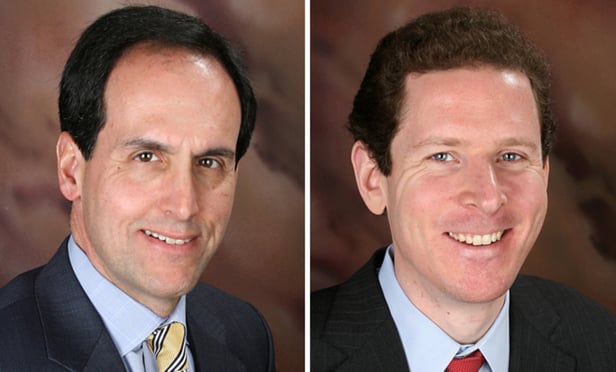Philip C Patterson

August 06, 2018 | New York Law Journal
Can International Comity Considerations Stop a US Antitrust Prosecution?As with other types of cross-border investigations, antitrust issues attract the interest of regulators around the globe, and U.S. authorities are active in matters involving foreign players.
By Philip C. Patterson and Vera M. Kachnowski
8 minute read

January 19, 2018 | New York Law Journal
FCPA Remedies: Where Do We Stand?International Criminal Law and Enforcement columnists Philip Patterson and Vera Kachnowski write: The end of 2017 marked both the 40th anniversary of the FCPA and a $965 million FCPA settlement with Swedish telecommunications company, Telia Company AB. As we begin the new year, FCPA watchers will be closely monitoring how remedies such as this evolve under both SEC and DOJ authority, in light of other 2017 developments.
By Philip C. Patterson and Vera M. Kachnowski
8 minute read

October 27, 2017 | New York Law Journal
Battle Over Emails Stored Overseas Reaches Supreme CourtIn their International Criminal Law and Enforcement column, Philip C. Patterson and Vera M. Kachnowski discuss a case which highlights a recurring tension between public safety and privacy concerns, and underscores the increasing complexity behind the technology we all rely on each day.
By Philip C. Patterson and Vera M. Kachnowski
18 minute read

July 25, 2017 | New York Law Journal
The Global Reach of the U.S. Computer Intrusion LawIn their International Criminal Law and Enforcement column, Nicholas De Feis and Philip Patterson use the Eastern District case 'U.S. Gasperini' to illustrate the global reach of U.S. computer intrusion laws. They write that the opinion demonstrates how, as technological innovation increasingly blurs any remaining lines between a computer and other electronic devices, U.S. computer anti-intrusion laws may eventually come to cover conduct involving virtually every electronic device in the world.
By By Nicholas M. De Feis and Philip C. Patterson
8 minute read

April 14, 2017 | New York Law Journal
Will Tech Firms Be Compelled to Produce Overseas Emails?International Criminal Law and Enforcement columnists Nicholas M. De Feis and Philip C. Patterson discuss the government's authority to seek warrants under the Stored Communications Act, a hotly contested issue that appears to be settled in the Second Circuit—but courts in other circuits don't appear to be following its lead.
By Nicholas M. De Feis and Philip C. Patterson
20 minute read

January 20, 2017 | New York Law Journal
The Perils of Resisting Extradition to the United StatesIn their International Criminal Law and Enforcement column, Nicholas M. De Feis and Philip C. Patterson reviews 'United States v. Tuzman', where a defendant was subjected to "provisional arrest" in Colombia at the United States' request and sent to the notorious La Picota prison in Bogota, and then had to fight to be extradited.
By Nicholas M. De Feis and Philip C. Patterson
16 minute read

October 27, 2016 | New York Law Journal
Start the Day Right: Preparing for an Overseas Dawn RaidInternational Criminal Law and Enforcement columnists Nicholas M. De Feis and Philip C. Patterson offer practical strategies for companies facing raids of their offices overseas. They note that although most foreign jurisdictions have begun to impose limits and oversight on these raids, the raids remain aggressive by U.S. standards. They are also increasing in frequency and not confined to any particular types of industries. Among the concerns they discuss is that employees caught unprepared may act in ways detrimental to both the corporation's and their own interests. Moreover, U.S. and foreign prosecutors are increasingly sharing investigative materials. U.S. law provides only limited protections against the use of evidence seized by foreign agents, even when seized in ways that would violate U.S. law.
By Nicholas M. De Feis and Philip C. Patterson
15 minute read

July 28, 2016 | New York Law Journal
Does the New FCPA Leniency Program Threaten Due Process?In their International Criminal Law and Enforcement column, Nicholas M. De Feis and Philip C. Patterson write: A new pilot program that offers leniency to corporations that self-report Foreign Corrupt Practices Act violations requires certain conduct by corporations to prove their commitment to cooperation with the government. But the cooperation contemplated by the program moves corporations closer to, and perhaps over, the line at which they become state actors.
By Nicholas M. De Feis and Philip C. Patterson
9 minute read

April 26, 2016 | New York Law Journal
Limits in New FCPA Leniency Program May Hinder EffectivenessIn their International Criminal Law and Enforcement column, Nicholas M. De Feis and Philip C. Patterson write: On April 5, the Fraud Section of the DOJ announced a pilot program offering potential leniency to corporations that self-report Foreign Corrupt Practices Act violations. Although intended to incentivize self-reporting, the program has limits and collateral requirements for credit that should cause corporate counsel serious concerns.
By Nicholas M. De Feis and Philip C. Patterson
20 minute read

January 25, 2016 | New York Law Journal
Using Anti-Corruption Laws to Address Overseas Security ThreatsIn their International Criminal Law and Enforcement column, Nicholas M. De Feis and Philip C. Patterson write: Although the DOJ's ability to act in foreign countries is limited at best, the recent prosecution of an official with Russia's state-owned nuclear corporation using federal money laundering statutes illustrates how the DOJ can try to chip away at the edges of serious crimes without having to depend on unreliable foreign enforcement efforts.
By Nicholas M. De Feis and Philip C. Patterson
11 minute read
Trending Stories
- 1Data Disposition—Conquering the Seemingly Unscalable Mountain
- 2Who Are the Judges Assigned to Challenges to Trump’s Birthright Citizenship Order?
- 3Litigators of the Week: A Directed Verdict Win for Cisco in a West Texas Patent Case
- 4Litigator of the Week Runners-Up and Shout-Outs
- 5Womble Bond Becomes First Firm in UK to Roll Out AI Tool Firmwide



